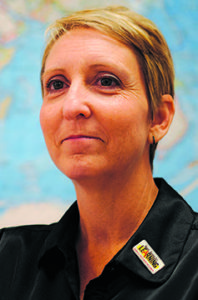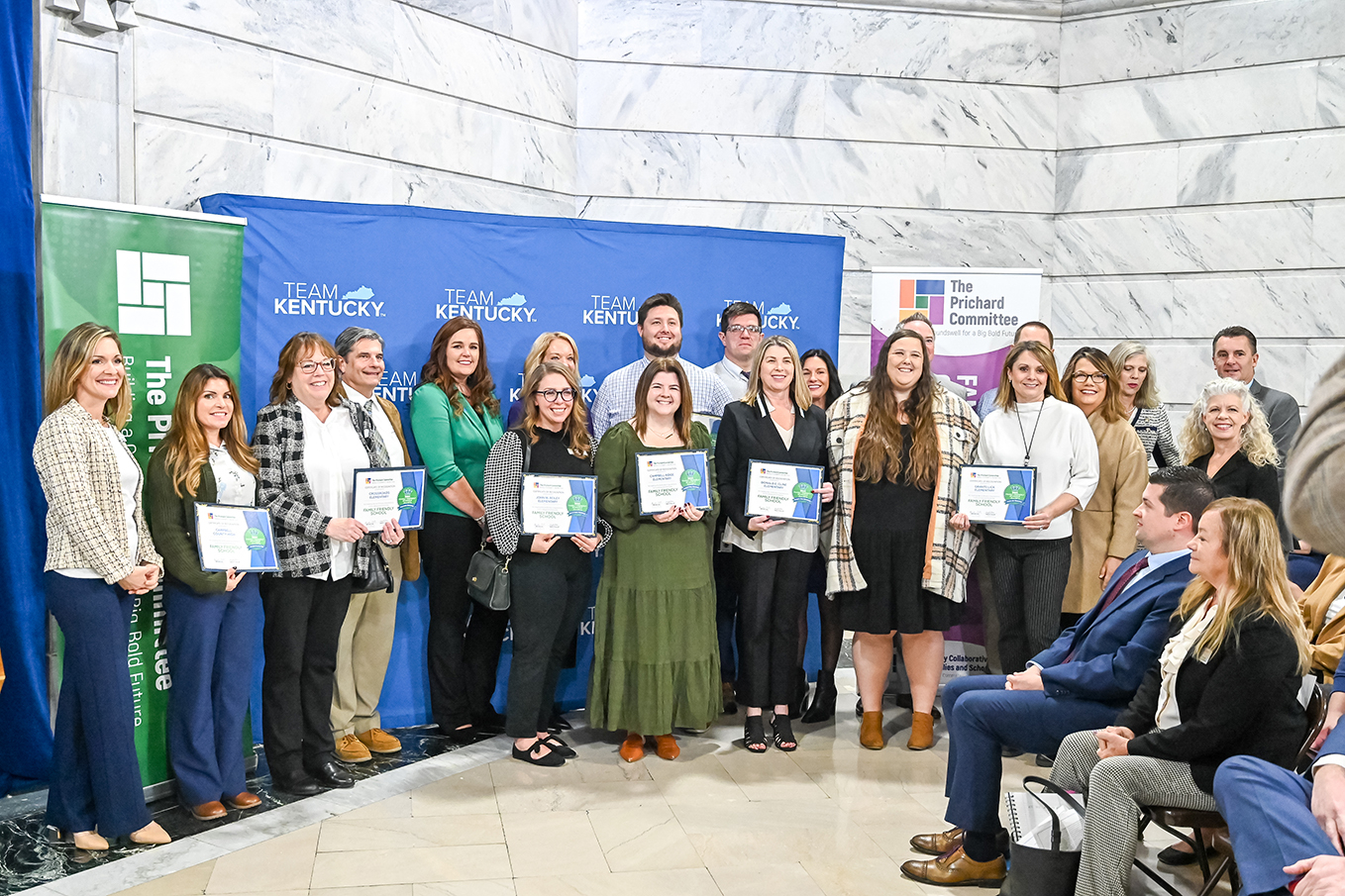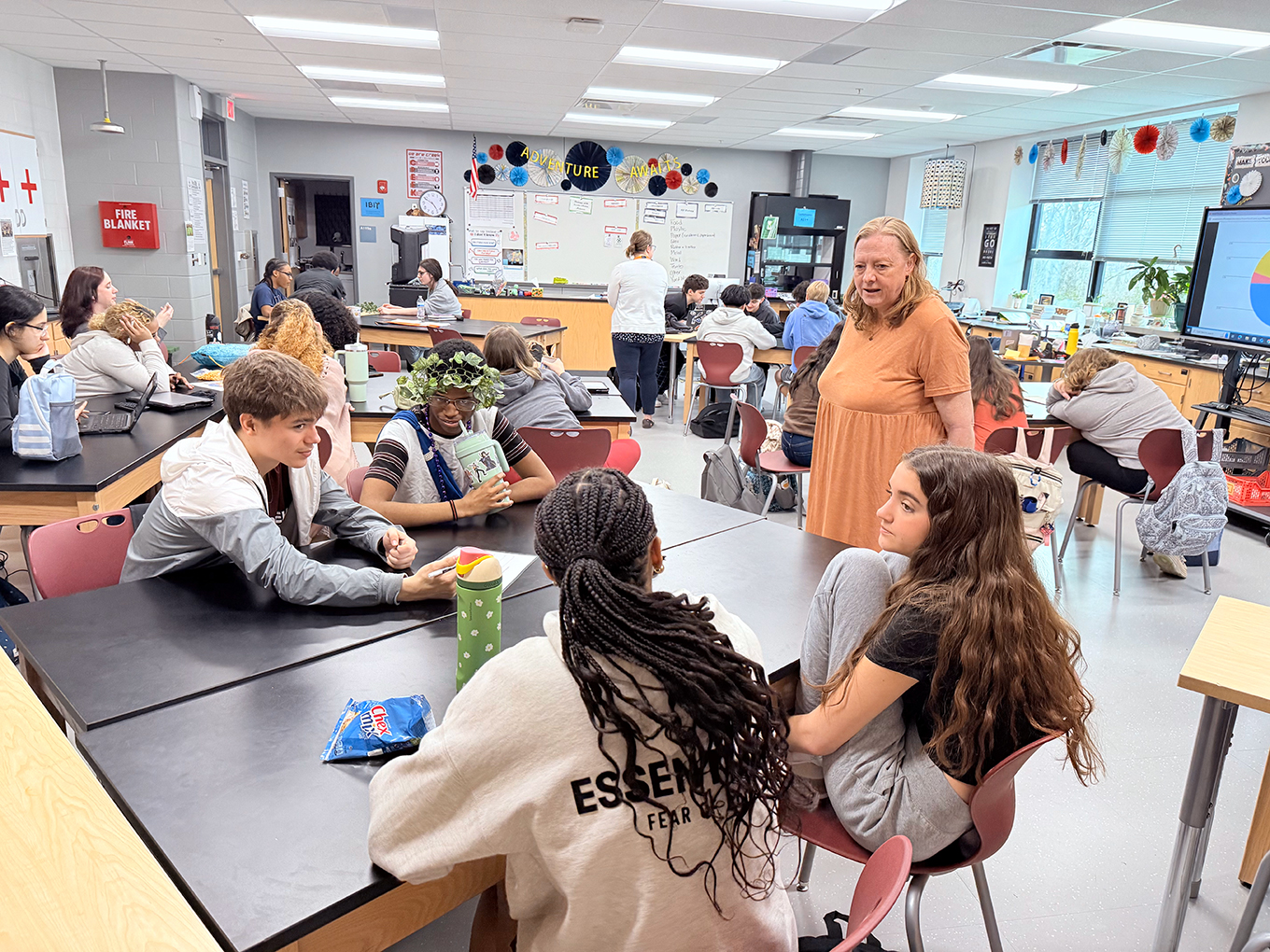
Crystal Culp
By Crystal A. Culp
crystal.culp@mccracken.kyschools.us
Every student wants to be successful, even if they don’t want to admit it. No student ever wakes up in the morning hoping for failure, although many expect it.
But has the student failed or are we the ones who have failed them? Failed them with our lack of empathy. Failed them with our lack of respect. Failed them, because we didn’t value them.
Schools across Kentucky are full of students who need someone to believe that they are worth the effort, worth a teacher’s attention, worth a chance to be the best version of themselves that they can be.
One place to find these students is in a juvenile detention facility. These students are why I was called to teach and why I desire no classroom in the world other than the one I have, the one that is behind six remotely locked doors and full of students who are ready to accept what society tells them they are – criminals.
As a teacher in an alternative setting, I stopped long ago trying to make sense of senseless situations. I stopped apologizing to students for society’s shortcomings and family dysfunction. I stopped allowing students to use their past as the excuse as to why they couldn’t do something or why they wouldn’t try.
In my classroom, I want students to focus on what they want their life to look like and not get distracted by the “I can’t” that has become their proverbial ball and chain. I begin writing each lesson plan with one question in mind: How can what students learn today be positively applied to their lives?
Enrollment in juvenile detention is controlled by the juvenile justice system and because of that, the student roster can – and often does – change daily. I have some students for so short a time that I have to make the most of every minute. I have to be on my game every day because it might be the only day that I have with them.
Typically, students who enter the juvenile justice system will go through three or more placements within one school year, which translates into three or more education programs. So much movement in a year causes gaps in student knowledge and repeated curriculum, leaving students frustrated and defeated.
These feelings are compounded when the work and grades they earned at previous placements don’t follow them and a whole year’s worth of effort can be lost. This can be emotionally devastating for even the best student, but especially hard on those who already struggle to maintain grade-level work.
According to the Kentucky Educational Collaborative for State Agency Children – which works to ensure state agency students receive an education comparable to all other Kentucky students – 33 percent of students who enter the juvenile justice system quality for special education services. In any regular education setting, this is the most vulnerable group of students. They are at-risk of being categorized a dropout and at increased risk of incarceration as an adult. The risk increases exponentially when a student who qualifies for special education services enters juvenile detention.
We always hear and believe that an education is the key to success, but for these students it is literally life or death – building a life outside detention vs. a spiritual death in prison. If they are to succeed, they need the opportunity, the tools, and the resources to do so – and this begins with a good teacher.
I have no illusions about it; my school is full of students who did not make it in the regular classroom and many will not make it in mine. But they are worth my effort. They are worth my very best and they are worth very best our Kentucky school districts have to offer. Gone should be the days when alternative education is seen as a place where the worst teachers go to get out of other kids’ way. Gone should be the days of thinking that students who end up there are society’s throwaways.
Teaching is an expression of love – love of learning, love of sharing and love of students. The challenge is finding love for all students, even the ones you don’t like. Prove the hard-to-reach student in your class wrong by helping them see that they are worth your time and they are worth your effort.
A U.S. Air Force veteran, Crystal Culp has 19 years of teaching experience, all in alternative education. In 2004, she was the first teacher nationwide to earn National Board certification while teaching in a juvenile detention facility, and renewed that certification in 2014. She works to ensure that other National Board candidates receive the support they need for successful certification, currently serving as a KEA state coordinator for candidate support services. In 2012, Crystal was named the Kentucky Educational Collaborative for State Agency Children’s Teacher of the Year. In 2016, she was named KEA Teacher of the Year. She is currently serving on the Kentucky Department of Education Commissioner’s Teacher Advisory Committee.




Leave A Comment